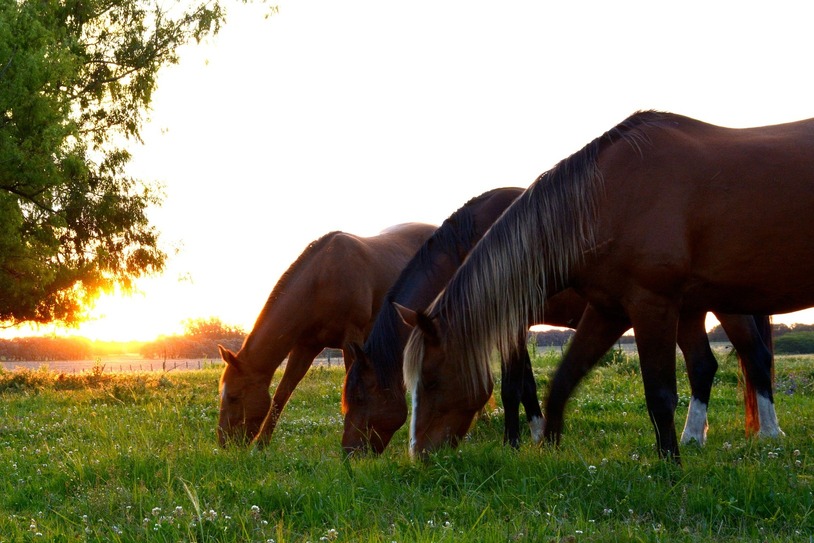'My thoroughbred is not eating all of his food and has started malting by the handful. He has his teeth checked regularly. Any ideas?'
Ensuring that you are providing your horse with a balanced diet - including the correct amounts of vitamins, minerals, proteins and calories is essential if you're aiming to achieve the optimum level of health for your horse. The better health that your horse is in, the better their performance shall be, which is just another reason that you should care deeply about the health, both physically and mentally of your horse.
Knowing what the correct balance of these nutrients would be is achieved by feeding in alignment to the size and workload of your horse. If a horse isn't receiving enough nutrients to fuel and support them to meet their daily requirements, deficiencies can occur, resulting in a variety of potential issues, some examples of this may be deterioration in the skin and coat, muscles fatigue and breakdown or problems with the behaviour and attitude of your horse...
Potential overfeeding can also prove to be an issue, allowing similar issues to underfeeding to arise as a surplus amounts of certain minerals can block the intake and absorption of others, therefore leading to both excesses and deficiencies that can harm your horse.
Without knowing the specific size and workload of your horse it is difficult to advise specific feeding quantities, however, you can enter in the appropriate details into a 'feed calculator' to recieve a guidance amount.
In order to ensure that your horse eats the full quantity of the feed that you are providing them with, you could introduce concentrates that may work as a tempter of sorts. Concentrates are typically a mixture of things, such as beet pulp, flaxseed, grains, molasses and more. Implementing concentrate mixes like grains, can help to make up for any potential shortfalls in your horses diet, providing them with energy.
Perhaps it is worth questioning whether your horse simply doesn't like the bale you are providing them with, in which case it may be a suitable idea to either try a fresher bale, or locate a different supplier, as there is very little point in forcing your horse to eat something that they simply do not like - as it is unlikely they will come around to consuming it.
Some horse owners suggest steaming hay as opposed to soaking it, in a bid to encourage fussy eaters. Steaming kills potential live mold that may be growing within the bale and also allows it to retain the nutrients that can often times be lost due to soaking. This can also reduce sugar levels in the hay.
These suggestions may only provide you with a quick fix, but the most important step in getting your horse to eat their provided quantity of food is to identify what has caused this lack of appetite in the first place, and what you can do to avoid this issue going forward.
Looking to learn more? Discover great advice and guides on all things horse health related (including supplement reviews) on the
Horsemart community blog.
Do you have a pressing question that you'd like some advice or guidance on from one of our panel of equestrian experts? Click below to submit your question and we'll do our best to answer it!
Find the latest ads on Horsemart, the UK's leading equine marketplace,
here.



